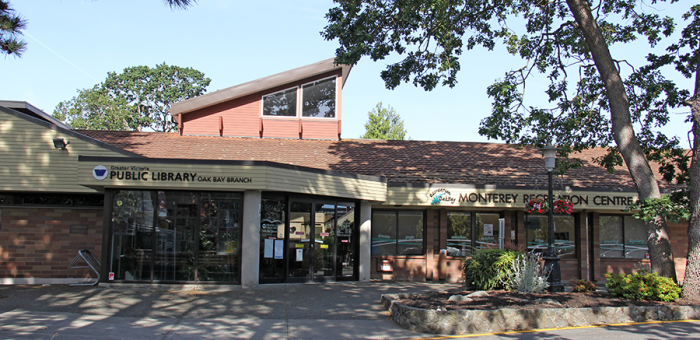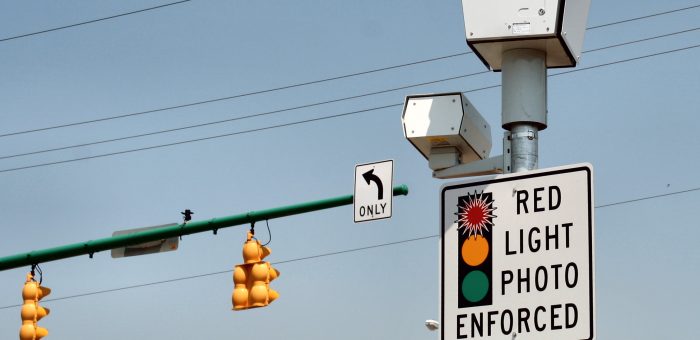Community Blog
Provincial funding for Public Libraries
Today in Committee A (which sits simultaneously with the main Chamber), Education Budget Estimates were being addressed. I took the opportunity to ask the Education Minister about funding for public libraries.
As you will see from the exchange (reproduced in text and video below), the BC Liberals cut the budget for public libraries by 20% in 2009. Since 2010, public libraries have received about $14 million from the province on an annual basis. There has been no cost of living adjustment since that time and increasing costs have been downloaded to local governments.
What’s worse is that historically there was a line item in the Budget that noted funding specifically set aside for public libraries. That line item recently disappeared and now Provincial funding is buried within the general education budget.
I was very pleased with the thoughtful responses I received from the Minister of Education.
Video of Exchange
Text of Exchange
A. Weaver: I’m going to switch topics slightly. Oak Bay–Gordon Head is not pressing for the building of new schools. We have thanked the previous government, actually, for the new high school that was built in Oak Bay quite recently.
I’d like to ask a couple of questions on public libraries, if I may. I don’t know whether that requires staff to change. It’ll be a few questions on public libraries. I do apologize for not providing my questions in advance, but it’s been crazy today. I’m actually supposed to be speaking right now in the main House at the same time, but clearly, I’m not. Can I proceed? Thank you.
A number of years ago, back in 2010, public libraries lost about 20 percent of their funds. Public libraries were cut to $14 million provincewide, and it’s remained flat ever since. In previous budgets, there used to be an actual line item that said “Public library funding, $14 million.” Now that line item no longer exists at all.
I’m concerned, in light of the fact that public libraries play such an important role in any democratic institution, that this line item is hidden somewhere, and it may be subject to future cuts. I’m trying to get a sense from the minister whether or not public libraries are protected in this budget update, and I’ll follow up with a couple of questions after that.
Hon. R. Fleming: I thank the member for his question. We haven’t gotten to libraries yet in this set of estimates. He may know that there has been some advocates for library funding for many, many years who have passed resolutions at the Union of B.C. Municipalities and other places specifically asking the library funding to come out of the Ministry of Education.
After I was sworn in, I endeavoured to meet with all of the four major library associations in the province to ask them if that historic position was still, indeed, the case. I’m happy to say they are giving us a chance, as a ministry, to do more with public libraries.
I certainly understand how critically important they are in communities. We’ve heard that loud and clear. I had at least a dozen or a dozen and a half meetings with mayors and councillors at the recent UBCM conference specifically about libraries and how important they are in all communities but rural communities especially.
Their utilization rates are growing all the time. There are a couple of communities — Trail is one that comes to mind — where they’re investing significant capital dollars in state-of-the-art library facilities. So there are good things happening out there.
In specific reference to the member’s question about the cut that the previous government brought in in 2008, when library funding was reduced from $17 million to $14 million, and where it’s at currently. In this budget update, the $14 million is protected. I’ve made that clear to anybody that is working in local government or in the library sector that that is the case.
We’re having some interesting conversations about what a new vision might look like for libraries in B.C. As the member understands, this is the budget update, so it was not a lengthy opportunity to engage in budget-making, but to his question, specifically, the $14 million in funding is protected.
A. Weaver: Thank you, minister. There will be a lot of people very happy to hear that answer on record.
I do recognize, and I have some sympathy, that public libraries are coming out of the Ministry of Education. It’s a difficult jurisdiction for whether it should be advanced ed. You could make the argument that it could be advanced ed, or it could, who knows, span many ministries.
I think the key aspect, though, is the shared importance of protecting these for public good. These are a public resource that is critical to the betterment of society. Many of the municipalities are concerned, as the minister knows, because of the fact that, since the funds have been stalled are at $14 million with no cost of living increase, costs have been downloaded onto municipalities.
The concern is that some of their budgets are going to getting some shocks, pretty soon, when the new public library budget comes in.
My question to the minister. I know this is a budget update. It’s if the minister is thinking — whether it be through his ministry or other ministries — about, perhaps, actually putting the libraries into a base budget somewhere and giving them the opportunity to grow through the provincial funding, whether it be through cost of living or other. Because it’s very difficult to make ends meet with funding that has been frozen for quite a number of years.
Hon. R. Fleming: Thank you to the member for that follow-up question. There has been some contemplation about where libraries might best fit in the structures of government. I think there’s a strong case to be made that the Ministry of Education is the right place for it. We have terrific partnerships all across British Columbia with local libraries. We’ve been asked to look at whether broadband access that we provide to rural and remote schools might be possible for libraries to benefit from. Lots of exciting discussions and literacy programs that happen between our local libraries and school districts.
Having said that, what the issue I think he’s getting at here is, is the frustration from, essentially, the erosion of library funding over the last ten years, nearly, since that cut was introduced to library funding. Then it was frozen against inflation — a bit of a double hit. It has led to a decline in the overall percentage share of provincial contribution to libraries. It’s meant that local governments have faced tax pressure on their ratepayers to make up for that state of affairs.
I heard mayors loud and clear and have been lobbied directly by a lot of city councillors, as well, and regional district directors to look at exactly that. I can say it’s a conversation that’s happening within government. I did not fail to note that the Union of B.C. Municipalities passed a resolution as well.
I think I will just conclude by thanking the member for raising it. It’s an important issue, and I think there’s massive potential for libraries to provide additional life-long learning opportunities, connection to employment and just general resilience and wellbeing of individuals and the communities that they serve.
My statement on government’s ridesharing (non) announcement
In response to today’s government announcement concerning ridesharing, I issued the media statement reproduced below.
I am very disappointed that the government will not keep its promise to bring ridesharing to British Columbians by the end of this year. As I note in my statement, the creative economy and innovation are the future of our province. We cannot be tech innovators if we’re not willing to embrace innovation.
Media Statement
Weaver statement on government’s ridesharing announcement
For immediate release
October 16, 2017
VICTORIA, B.C. – Andrew Weaver, leader of the B.C. Green Party, responded to the government’s announcement that it anticipates it will bring legislative changes to enable ridesharing in Fall 2018.
“I am very disappointed that the government will not keep its promise to bring ridesharing to British Columbians by the end of this year,” said Weaver.
“It has been five years since ridesharing was first introduced into B.C. There have since been reports that ridesharing companies are operating without proper oversight, regulation and insurance. Further, all three parties agreed to bring in ridesharing in the last election and have now had significant time to consult stakeholders and assess the various ramifications of regulating this industry in British Columbia.
“The creative economy and innovation are the future of our province. We cannot be tech innovators if we’re not willing to embrace innovation. As new technologies emerge, government should proactively examine the evidence and openly debate the issue in a timely manner so that we do not fall behind the curve.
“On Thursday, for the third time, I will introduce legislation that will enable ridesharing to finally operate in a regulated fashion in B.C. I hope both parties will take this opportunity to engage in a substantive debate on the details of this issue so that we can move past rhetoric and vague statements and finally get to work delivering for British Columbians.”
-30-
Media contact
Jillian Oliver, Press Secretary
+1 778-650-0597 | jillian.oliver@leg.bc.ca
Statement on the Fair Wage Commission
Today the BC Government officially launched the Fair Wages Commission. Below is the statement that we released in support of the government’s announcement.
Media Statement
Weaver statement on the Fair Wages Commission
For immediate release
October 5, 2017
VICTORIA, B.C. – Andrew Weaver, leader of the B.C. Green Party and spokesperson for the Ministry of Labour, responded to the launch of the Fair Wages Commission today. The Fair Wages Commission was a B.C. Green platform commitment, and was negotiated into the Confidence and Supply Agreement with the B.C. NDP.
“I welcome the creation of a Fair Wages Commission that takes politics out of discussion around the minimum wage by establishing an arms-length body tasked with addressing the discrepancy between minimum and living wages,” Weaver said.
“Our economy is changing rapidly, creating new challenges for workers and businesses. It is imperative that we have this commission that will take into broader economic trends such as the rise of the gig economy, automation and the increasing prevalence of part-time and contract work. This commission will consult with business, labour and other experts and stakeholders to advise strategies so that we can work towards the ultimate goal of achieving liveable incomes for all British Columbians.”
-30-
Media contact
Jillian Oliver, Press Secretary
+1 778-650-0597 | jillian.oliver@leg.bc.ca
Pressing the government to commit to demand-side housing reforms
Today in the legislature I rose to question the Minister of Municipal Affairs and Housing about the government’s apparent inaction on the affordability file. When I attended the Union of BC Municipalities 2017 convention last week I heard the Premier give his address to delegates. In it he once more focused only on the supply side of the affordability crisis. But there are also problems on the demand side.
As I have argued for four years, there is a glaring tax loophole that needs to be closed. This Bare Trust loophole incentivizes speculation, discourages transparency and encourages property tax avoidance.
Below I reproduce the video and text of my question period exchange with the Minister. I also reproduce the media release we put out today.
I was not statisfied with the response to my questions. Over the coming weeks we’ll continue to pressure the government to deliver on their commitment to clamp down on rampant real estate speculation in British Columbia.
Video of Exchange
Question
A. Weaver: It seems fitting that I rise and ask a question after this.
Last week, at the UBCM, the Premier took a page out of the B.C. Liberals’ failed strategy to deal with Metro Vancouver’s housing crisis. “We need more supply,” he proclaimed to the delegates. Once more our government has missed the glaring problems on the demand side. Where is their promised speculation tax? Where are the so many other steps that they said they would do and that they would take during the election campaign? And why, after I raised it here in the Legislature almost four years ago, has this government not yet closed a loophole that incentivizes speculation, discourages transparency and encourages property tax avoidance?
My question through you to the Minister of Municipal Affairs and Housing is this: why haven’t you already closed the bare trust loophole — a loophole so big you could drive a bus through it — and ensure that the property tax is applied on the transfer of beneficial ownership and not just the transfer of title?
Answer
Hon. S. Robinson: I want to thank the member down the way for the question.
It’s really important that, when we take a look at the housing crisis — a crisis that rose under the previous government that did nothing, that just pretended like it was not an issue….
Interjections.
Hon. S. Robinson: Let’s be really clear. They were saying: “If you don’t like it, move to Fort St. John.” People have been really struggling.
Interjections.
Mr. Speaker: Members, please, we shall hear the response.
Hon. S. Robinson: It’s really important that….
Interjection.
Hon. S. Robinson: I’ve got nothing against Fort St. John, but I don’t like the government telling me where to live.
It’s really important that when we talk about putting together a comprehensive, affordable strategy, a comprehensive housing strategy, that addresses all of the pieces — the supply side and the demand side — that we take a look at all those levers and all the tools at our disposal, that we make sure that they work together. That’s what comprehensive means, and we need to take our time to get it right.
It’s really important. This is too important to really mess up, so we need to make sure that we’ve got it right. I’m really excited that it is coming in short order.
Supplementary Question
A. Weaver: Please let me remind you that when the Attorney General was in opposition, he was a very fierce critic of the B.C. Liberal housing policy or lack of a policy on affordability. Indeed, a year ago he told Reddit, the readers of Reddit: “We need to eliminate what’s called the bear trust loophole in the property transfer tax where these properties can transfer without property transfer tax paid. It’s costing us literally hundreds of millions of dollars, hundreds of millions that could be used for affordable housing initiatives.”
It’s a straightforward fix. All we have to do is what Ontario has already done years ago. We don’t need to rediscover the wheel, and there is no excuse for a delay.
My question through you to the Minister of Municipal Affairs and Housing is this: what’s the holdup? You’ve had many years in opposition identifying problems, and you’ve had many years to identify solutions. The Attorney General has identified those solutions, said he’d do it. It’s a quick fix. Why haven’t you done it?
Answer
Hon. S. Robinson: I’m grateful that, with the help of member down the way, we’ll have 4½ years to get this work done. And I look forward to that work.
After ten weeks here in government, we have acted on a promise to increase funding for the residential tenancy branch. We are preparing to close unfair loopholes that allow landlords to bypass rent control, something that the previous minister said was rather complicated, which we learned was actually not that complicated.
We’ve announced the creation of 2,000 units of modular housing with wraparound services. We also announced 1,700 unit of affordable housing throughout the province.
That’s in ten weeks. Just think about what we are going to get done in 4½ years.
Media Release
Weaver presses B.C. NDP to commit to demand-side housing reforms
For immediate release
October 3, 2017
VICTORIA, B.C. – Andrew Weaver, leader of the B.C. Green Party, today questioned housing Minister Selina Robinson on the B.C. NDP government’s intentions to take action to cool the housing market.
“Last week at UBCM the Premier indicated that his government’s solution to the problem of housing affordability is to simply add more supply,” Weaver said.
“Once more our government has missed the glaring problems on the demand side. When in opposition, Minister Eby was a fierce critic of the government’s failure to act, and argued that the bare trust loophole costs British Columbia hundreds of millions of dollars that could be used for affordable housing initiatives. The government can take action immediately to close the bare trust loophole that incentivizes speculation, discourages transparency and encourages property tax avoidance.
“The B.C. Greens are committed to proposing bold solutions to the affordable housing crisis that is facing so many communities. I have previously called for the non-resident foreign buyer’s tax to be extended to the entire province, as communities from Victoria to Nelson face a housing crunch. I have also called for a ban on foreign ownership of ALR land over five acres, in order to stem speculation and protect British Columbia’s food security.
“The purpose of housing should be to provide homes for British Columbians – not a commodity that is wide open to international speculation. The B.C. Greens will continue to propose bold, actionable solutions to the housing affordability crisis that is uprooting so many communities across our province. As an opposition caucus, we will continue to push government to take action so that no British Columbian is faced with the terrible reality of being priced out of their own community due to real estate speculation.”
-30-
Media contact
Jillian Oliver, Press Secretary
+1 778-650-0597 | jillian.oliver@leg.bc.ca
My statement on ICBC rate increases and audit
I issued a statement today (reproduced below) on the BC Government’s announcement that ICBC rates would increase by about 8% for the average BC driver.
It is essential that we not take any options that would reduce rates off the table. The current system is overly litigious and adversarial. Payouts for minor bodily injuries have increased 365% since 2000. Every other public insurance system in Canada either limits certain types of claims or operates as a no-fault model. Option 4 in the Ernst and Young report projected that such a system would reduce vehicle premiums by $630, or 13.5%, by 2019.
Why are we fixated on talking about what we can do to mitigate rate INCREASES instead of focusing on how we can promote rate DECREASES?
Media Statement
Weaver statement on ICBC rate increases and audit
For immediate release
September 5, 2017
VICTORIA, B.C. – Andrew Weaver, leader of the B.C. Green caucus, responded to the announcement that the government will raise ICBC rates, turn on red light cameras and conduct a business audit of the Crown Corporation
“We already have an evidence-based, taxpayer-funded report with proposals for reforms,” Weaver said.
“While I am glad that the government has adopted the Ernst and Young report’s recommendation to turn on red light cameras, with ICBC in such a perilous financial situation, the time to implement changes is now.
“Furthermore, it is essential that we not take any options that would reduce rates off the table. The current system is overly litigious and adversarial. Payouts for minor bodily injuries have increased 365% since 2000. Every other public insurance system in Canada either limits certain types of claims or operates as a no-fault model. Option 4 in the Ernst and Young report projected that such a system would reduce vehicle premiums by $630, or 13.5%, by 2019.
“I concur with the Attorney General’s statement that ICBC’s abysmal financial standing is due to the unwillingness of the previous government to make tough choices. With this new government, there is an opportunity to do things differently. As the business audit of ICBC proceeds, the B.C. Green caucus will advocate for bold, evidence-based solutions that will ensure the best possible outcome for B.C. ratepayers.”
-30-
Media contact
Jillian Oliver, Press Secretary
+1 778-650-0597 | jillian.oliver@leg.bc.ca








